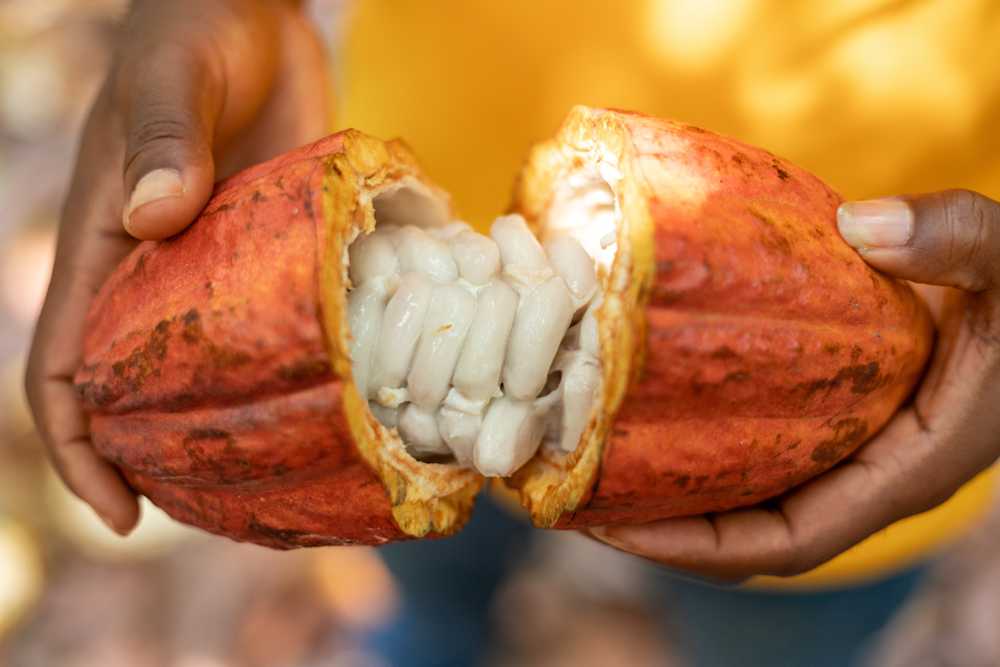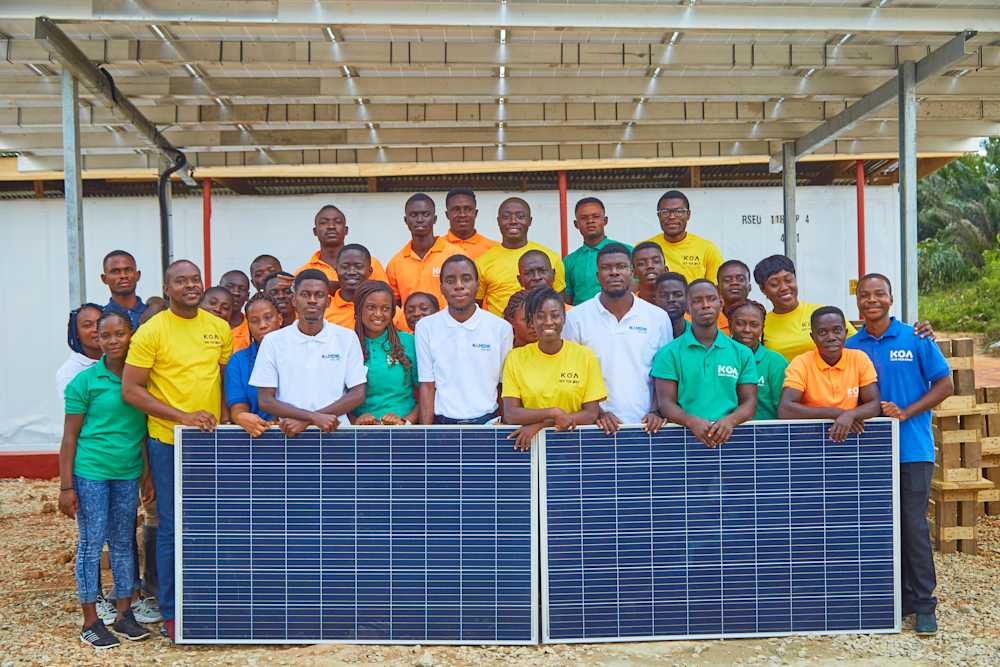From pulp to husk: Creating value out of cocoa waste products in Ghana
responsAbility finances organizations across the cocoa value chain such as companies supplying cocoa beans as well as innovative companies aiming to increase value creation at cocoa’s origin through local processing and utilising side products. One such example is Koa, a Swiss-Ghanian company, which was established in 2017 by two solar entrepreneurs with the aim to improve farmers’ lives in rural areas in Ghana. The first factory was opened in 2019 in Assin Akrofuom, and a new, larger factory will open in August 2023 in Akim Achiase.

Cocoa beans used for making chocolate comprise only 25% of the cocoa fruit – the rest is husk (50%) and cocoa pulp (25%), which are usually discarded as waste. Koa purchases the otherwise unused cocoa pulp directly from farmers and processes it to create natural sweetener products for food industry use, such as for chocolate bars and drinks. This innovative product brings additional income to the farmers and reduces food waste by 40%. The start-up is now tackling its next growth phase with the objective to build an entire circular ecosystem around the cocoa fruit in order to valorise 100% of the so-far discarded fruit, including the cocoa hearts and the husks.
Over 70% of cocoa farmers in Ghana do not earn a living income1. Koa increases farmer income significantly through creating the additional revenue stream beyond cocoa beans. They have trained, and purchased from over 2,200 farmers, and since last year direct payments to farmers are transparent and traceable through the platform of their partner seedtrace. The planned extensions around the cocoa fruit are aiming to further close the gap towards a living income for cocoa farmers while at the same time providing the cocoa industry with solutions to reduce and remove its carbon footprint within the value chain.

Using the founders’ previous expertise, their mobile processing units – which are used to extract cocoa pulp in rural areas - are solar-powered. Koa does further processing at their factory, which is also partially powered by renewable energy.
We’re delighted to be a financial partner of Koa and look forward to supporting its continued growth and positive impact for people and planet.

Harriet Jackson
Harriet Jackson co-leads the sustainable food debt investment team for Sub Saharan Africa at responsAbility. Prior to that she worked for five years in responsAbility’s climate finance team, structuring clean energy lending programs in banks globally. She is also active in gender lens investing and its nexus with climate investments. She studied at the London School of Economics and HEC Paris.